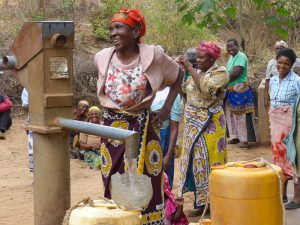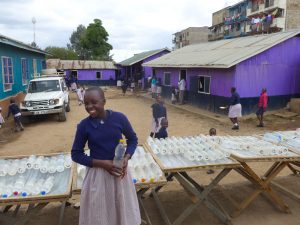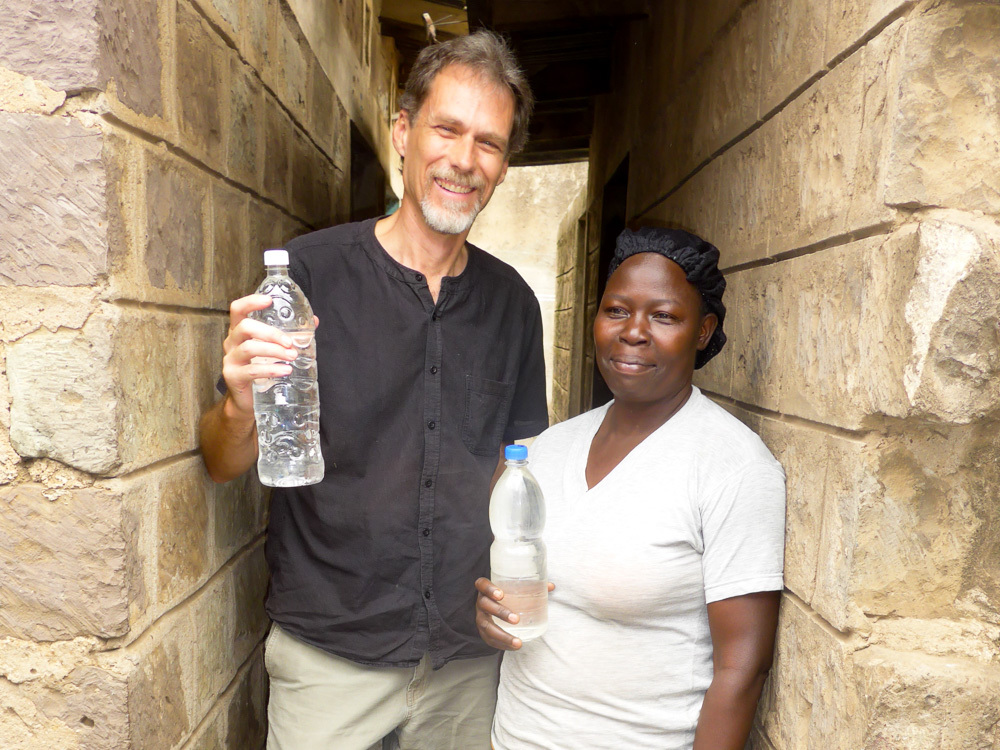In the first of six Suter Science Seminars this fall at Eastern Mennonite University, Eastern Mennonite University biology professor Doug Graber Neufeld will discuss sustainable solutions to water-related challenges in Kenya.
The seminar, at 4 p.m. on Wednesday, Sept. 20 in Science Center 106, is free and open to the public.

Graber Neufeld will describe three Mennonite Central Committee (MCC) projects: sand dams for community water harvesting in semi-arid regions, conservation agriculture for increased crop production in rainfed agriculture, and solar disinfection for clean water supplies in urban slums of Nairobi.
Rigorous monitoring and experimentation is playing a key role in the successes of these projects, which promote changes in behavior and technology. Lessons coming out of this emphasis center on the importance of participatory approaches coupled with advances in understanding how social change happens and how individuals make decisions.
Graber Neufeld has worked for MCC on water-related projects twice, first for two years in Cambodia, and more recently for two years in Kenya [to view a blog about his family’s adventures, click here.]
In addition, he works with water projects locally, with a focus on water quality impacts in area streams.
At EMU, he teaches courses related to environmental sustainability and health. He is also the first director of the Center for Sustainable Climate Solutions, a collaborative effort of EMU, Goshen College and MCC. [Read his reflections on the new center’s mission here.]

Graber Neufeld received his BA from Tabor College and his PhD from the University of Texas, Austin. He held postdoctoral research positions at medical schools at the University of Arizona and the University of Otago, New Zealand, before coming to EMU in 1998.
The Suter Science Seminars are made possible by the sponsorship of the Daniel B. Suter Endowment in Biology and the co-sponsorship of supporting programs.

Thank you for your work with water issues in Kenya
I am the volunteer Executive Director of a nonprofit called “Friends of Shirati” that supports Shirati Hospital, Shirati College of Health Sciences and Shirati Leprosy Compound in Tanzania. Sustainable water has been an issue at for many years and stifled their work every day. Last year I visited Shirati Hospital and during my time there, they without water for 3 weeks. After experiencing this terrible situation, “Friends of Shirati” raised over $100,000 for the installation of a solar water pump, 1.7 miles of new water pipe. The end result is a daily supply of 40,000 gallons of water per day and over the last year they have received 2 million gallons of water. Water is also being sold to the community. A great success with the power of the sun.